List of Upcoming Security Tokens
Bitbond Token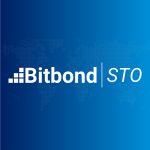
Bitbond Token (BB1) is a Germany-based security token which is utilizing the blockchain to offer global lending services. Its' token holders will receive back 1% interest on their invested money every quarter (translating to 4% per year). Holders will also receive a variable coupon once every year.
Once the STO is concluded this July, anyone will also be able to trade the tokens on the Stellar decentralized exchange.
Bitbond Finance GmbH, the issuer of the token, is owned by Bitbond GmbH, the first cryptocurrency-based lending platform for business loans that operates globally. Bitbond was founded in 2013 and is already facilitating more than $1 million in business loans every month. It is regulated by BaFin, German's financial regulatory authority.
The lending platform, which can manage over 1,000 transactions per second and on which transactions cost a fraction of a cent, connects investors and borrowers from over 120 countries thanks to its' blockchain-powered payment processing. Its' primary differentiator in all of this, is its' utilization of a machine-learning algorithm to make credit decisions within 24 hours.
The Bitbond STO will continue until July 8.
BlockState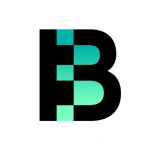
BlockState is a Swiss security token platform for non-bankable assets such as SME equity, debt and real estate. The platform will allow investors to invest in these kinds of assets in the form of digitized securities as issued by their actual, regulated entities. Tokenization will make these assets accessible through a traditional market infrastructure to many people, all at once. With regards to this, information asymmetry, high costs and large ticket sizes have been preventing many investors from accessing these assets until now. Therefore, BlockState's main goal is to open up this market, as mentioned above to as many people as possible, within reason.
That means the platform will serve as a tokenization platform for any asset class including equities (company stock), real estate, debt to any unbankable asset like commodities, art and more. All of these are part of the 54% of the world's assets that are not currently easily investable in because of the challenges already mentioned.
The tokenization of these assets will also their issuers raise funds quickly, easily and at a low cost while investors can invest in them for little amount of money without needing much capital. Issuers will issue security tokens backed by their assets in question while holders of those tokens or investors will not only be able to share dividends but to also do voting for decision-making about the projects in question .
For security token issuers, the platform will help them to perform STOs within 10-12 weeks. It also will provide a full digital lifecycle management of issued security tokens. For instance, from dashboards, token issuers can get guidance on how to define STOs and generate legally binding smart contracts and how to tokenize. Issuers can then manage their investor data and information from the dashboard, and generate and automate reporting and analytics for the STOs. The latter can be shared with regulators and shareholders, for instance.
The company is headquartered in the "Crypto Valley," or the city of Zug in Switzerland, with another office in Berlin. The project is supported by KPMG, Crypto Valley, International Token Standardization Association, R3, SmartDec and others.
The group's STO started on Tuesday and will conclude on July 12.
Blockstack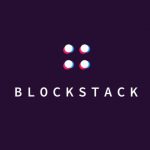
Blockstack is a full-stack, decentralized computing network based on the Stacks blockchain and which enables dApp developers and their users to own data when they use dApps hosted on the ecosystem. For instance, users can decide to store data on their computers or with available commercial storage providers they want or trust. The data is hosted in the encrypted form. On the ecosystem, users will have keys that unlock all software interactions, emails, subscriptions, and social accounts.
There is no need for users to login to unlock access to the platform's software and apps. Its' dApps facilitate a decentralized computing ecosystem with peer-to-peer networks using protocols that supports a better distribution of information on said networks.
The platform lets developers to build Javascript-based apps that have no backend development, and these can be built in less time as little as an hour. These developers can then be paid monthly with app mining -- Blockstack pays out $100,000 to the best hosted apps every month and better apps earn even more. DApp developers can also earn more money by improving ranking of their apps although apps are ranked after review by experts.
Although they pay app developers and users in BTC for now, they intend to start paying in Stacks tokens as early as this year.
Blockstack also hosts over 100 global events, summits, and hackathons that are attended by around 10,000+ developers, scientists and entrepreneurs each year. Their ecosystem is also comprised of funds and non-profit foundations pursuing different ends.
BlueShare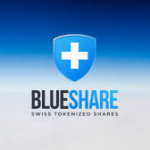
BlueShare is an asset - equity capital tokenization project for Swiss-based Interprom Mining AG, built on the Ethereum blockchain. The mining company has been in business for 23 years and has a proven track-record and a pipeline of natural resources. Interprom EOOD, the main shareholder in Interprom, has ongoing projects valued at over EUR 400 million in form of construction tenders a participations planned for 2019.
Their main activities include water treatment facilities, water supply and sewer infrastructure, public urban facilities, underground construction works and road expansion and repairs. Mineral explorations include Gold, Silver, Copper, Zinc, dolomite, limestone and diabase rock, and other minerals.
The plan is to tokenize the business and sell it through BlueShare where investors can buy from 200 Blueshares (BST tokens), which is valued at around EUR 320, after undergoing KYC/AML procedures. Token holders will receive equivalent rights associated with traditional shares namely dividend rights, liquidation rights, and financial rights. The platform will also feature p2p wallets so it will be possible to transfer tokens among shareholders, and they can trade or exchange the tokens after conclusion of the STO. The dividends will be paid out both in fiat and crypto.
The STO is on-going and will conclude on August 03.
BTCNYEX 
BTCNYEX is a cryptocurrency exchange planned to have support for FIX Protocol and Dark Pool trading in order to enable institutional investors to trade on it. It will charge no exchange fees and transactions will be based on the bid-ask process, meaning that it will not require full spread. The dark pools will also have low transaction cost.
Other features to be included are fractional share trading, strategies to prevent flash clashes such as halts and curbs, Proof of Solvency audit reports to prove reserves, auto trading, social media sentiment analysis, social media integration, trading system back testing, pattern recognition, an A.I. chatroom and more.
The private sale started on June 1 and will end on July 1.
Carthagea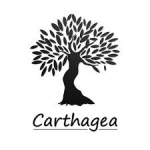
Carthagea, a French operator of nursing homes that specializes in the care for people who can no longer live alone at home and who need support for their daily life and medical assistance, is launching an STO in order to launch operations in Tunisia.
The current facility can accommodate up to 185 unconditional residents of age alone or in couples and be capable of providing them with quality care. It employs a total of 280 people.
Chaineum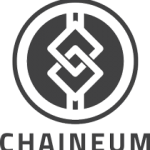
Chaineum is a blockchain and disruptive technologies company that was founded in 2015. In particular, it specializes in fundraising, strategic financial advisory services, digitalization of financial assets and blockchain-based platforms (ICO/STO issuances and digital financial assets exchanges).
The company is currently developing a blockchain-based asset tokenization solution and to that end launching a tokenization platform that will see companies or startups who are willing to raise funds, tokenizing equities, debts, derivatives, obligations, real estate, art pieces, and classical cars, etc on the platform. The solution will offer access, liquidity and transparency to markets initially reserved for a minority of privileged people.
Through tokenization of assets and offering them for sale on the platform or through fundraising, companies can raise capital from investors and investors can invest in those businesses. The startup also provides accompanying services including STOs, ICOs and IEO advisory. Other services provided include preparing of business model, financial forecasts and valuation, feasibility evaluation and assessment of potential investment sources, preparing presentations to be done to potential investors, negotiation management and drafting of the terms and contracts, and project management from transaction to the achievement.
Chaineum, the token to be bought via the STO represents total or partial ownership of an asset e.g. company equity, a real estate asset, an art piece, etc.
The project's main sale will start on May 16 and will end on July 31.
Eqwity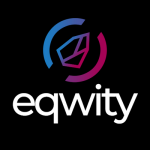
Eqwity is a security token platform that is dedicated to the improvement of the technology and the processes around the issuance of security tokens. To make the issuance of security tokens much better, the platform -- known as STO Plus Platform -- will be applying data intelligence and A.I. for aggregating, standardizing and digitizing all necessary services for setting-up a Security Token Offering from A to Z. The company is based in the United Kingdom.
Using the platform, users can perform and automate a number of things when issuing a security token. They are able to validate their regulatory compliance and promote their offerings to investors on the platform. The platform will have four features: making possible easy on-boarding of clients; functionality they call Community Voice which is to be used by STO issuers to decentralize investor relations and company governance (voting, opinion sharing, online general assembly); Blockchain Stock Exchange which will essentially be the first Digital Asset Exchange dedicated to most capitalized blockchain companies and startups; and a Block Accelerator incubator that also adds in issuance, compliance, fundraising and trading. It will have a platform token called EQYS.
The STO project has already raised over $ 1,3 OR 77% of its' goal and its' efforts will end of the 10th of May.
Fvndit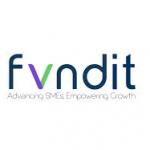
Fvndit for Fundit is a P2P, Vietnam-based marketplace where SMEs can attain short-term working capital to run their SMEs, based on their trade receivables. Through an wholly-owned subsidiary known as eLoan, JSC, Fvndit has facilitated loan disbursements worth over $6.5 million so far. On the platform, investors offer loans to borrowers and can then earn 15-20% per annum on the eLoan marketplace. Business will then pay 3-5% transaction fees upfront in order to access loans while investors can easily select a company to lend to. They can then pay back principal+interest.
Fvndit is aiming to serve the over 600,000 SMEs located in Vietnam, with the number of SMEs growing by over 14% per annum and over 100,000 new SMEs being registered eachyear. To the SMEs, it will reduce the longer payment receivable cycles which is often up to 90 days.
Fvndit, which is led by an experienced team having 50+ years of banking and consumer product scaling experience, will pay $0.10 USD dividend per token to the STO investors and token holders with potential increase in absolute return per token in future.
Indx Capital
Indx Capital is a masternode investment token and project that allows token holders to invest in a variety of masternodes and receive passive income from an index-linked masternode portfolio. The platform will utilize an algorithm that determines the most profitable masternodes and users can put in their money into increasing value of these projects without having to do the analytical and technical aspects of running and managing a masternode on their own. The algorithm will automatically re-balance the portfolio to give the highest possible masternode revenues.
They will invest in a portfolio in a way to acquire a basket of established and emerging cryptocurrencies with masternode infrastructure such that the rewards are always maximized.
50% of the net yield will be distributed back to INDX token holders and 50% re-invested back into the Assets Under Management (AUM) to further strengthen the token value and market cap.
Indx Capital's fundraising efforts started on May 1 and will end on June 30.
KABN Network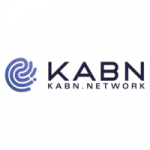
KABN Network offers a suite of blockchain-based financial services including Pegasus Flyte Visa Card, a crypto prepaid Visa card, mobile integrated multi-currency banking wallet; a robust loyalty and engagement program KABN KASH; and a patent-pending network anchor biometric identity verification and validation platform known as KABN ID.
It is partnering with European-based Transact Payments to launch the Pegasus Flyte Visa card and Mobile Banking Wallet program in the UK and in the EEA in Q2 this year.
The token is an equivalent of KABN Preference Equity Share with alll the rights and privileges of those shares. Alongside other aspects of the service such as the Visa card, the token will facilitate conversion of digital currencies into fiat and vice versa.
The project's main token sale ended on May 27th.
Kriptomat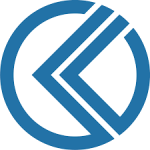
Kriptomat is a E-U-based crypto and digital asset exchange platform based in Estonia and which is fully regulated. It is a founding member of International Association for Trusted Blockchain Applications (INATBA), which is supported by the EU Commission. The exchange will expand across Europe.
The project's main token sale ended on June 10th.
MinedBlock (MBTX) STO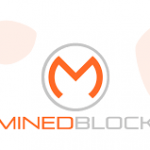
MinedBlock wants to tokenize cryptocurrency mining and offer it as a service by allowing users to buy a security token that will give rights to shareholders to receive a revenue share from revenues generated from the company's mining farms. Holders of the MBTX token will posses 95% of the Special Purpose Vehicle and the associated costs and revenue and will receive a revenue every month.
What MinedBlock does is mine multiple cryptocurrencies in their large-scale mining operations. There mining farms/operations will be located in places where operation costs will be low and the operations will be monitored to ensure the miners are running at peak efficiency.
Through the token, anyone can share into mining profits without having to buy mining hardware or manage mining activity on their own. No need to do the work of determining which coin to mine, no maintenance of equipment hassles, no configurations and no worrying about downtime on the side of the investor.
Their economic model (Dual Token Model) comprises of two types of tokens: a Polymath ST20 security and a ERC20 Utility token. Holders of the security token can earn a passive income from a share of 75% of profits generated from the mining activity. The investors will receive monthly profit share payments.
Holders of ERC20 token can use the token to rent or buy private mining hardware, or to pay for period management fees, and profits from the investments will be paid directly to their wallets. Both of these tokens are freely tradable. Users have to first of all pay for KYC and Accredited Investor checks but the amount will be reimbursed with discounted MBTX.
Their STO is ongoing until Aug 31st.
NETZ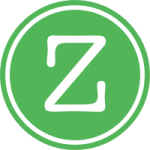
NETZ is a Renewable Energy Asset Backed Token that offers investors quarterly dividends. It will disrupt the bridge between capital market and asset development market leading to lower costs and increased speed and growth of entities. NETZ is not starting at zero: they are an asset developer for over 200 projects. They have raised over 30+ Million Dollars and delivered projects across 30 years.
What they are currently doing with blockchain is to incorporate it into their ecosystems in order to provide full transparency for their power plants and to short cut capital market and funding into capital intensive projects and assets development. NETZ invests in green energy power plants within waste to energy acquaculture with underlying collateral and highly profitable renewable energy assets.
The project expects to earn contracted revenues from their renewable power plants since most of the project will pay out revenue even if a project stills due to insurances and structure of agreements.
NETZ Coin, a 2.0 Generation Security token, will make possible energy investments into quality power plants, which were only accessible to high profiled and high value firms, making them accessible to everyone including those with low capital. The company invests in projects that are qualified as Net Zero Enterprises proprietary underwriting model.
According to NETZ website, the investor historically returns 23.3%. The company will reinvest 50% of the proceeds into new assets and distribute the remaining to token holders on an on-going basis.
Resolute Fund
Resolute Fund, which is set to launch on the Swarm Fund issuance platform, will offer investors with an investment opportunity to invest in U.S. real estate. Buying Resolute security tokens will mean the investors will have shares in this fund and they can choose to hold or sell at any time. Resolute Fund will focus on distressed mortgage loan investments in commercial and residential properties where they will acquire these loans at discounted prices, manage the loans and exit via refinancing, resale of the loan or sale of the underlying property.
The target is to have the token increase in value as the value of loans increase and the company can generate cash flow from mortgage payments. The fund is targeting a 18-20% return on investment.
Regarding tokenomics, the ERC 20 compliant digital securities based on Ethereum blockhain will have an initial value of 1 resolute to 1 USD. The fund may periodically buy the security tokens on the open market thereby reducing the number of digital securities outstanding.
The date for the project's STO has yet to be announced.
Robinhood 
Robinhood Crypto, a well-known cryptocurrency trading app, which is a is a subsidiary of of Robinhood Markets, that is also launching their token known as RHET, a security token that derives value from the secondary acquisition of securities by Robinhood Inc. The cryptocurrency will gain value from price appreciation of Robinhood Inc shares. Robinhood Markets allows people to invest in stocks, ETFs, options, and cryptocurrencies, all commission-free, right from their phone or desktop.
The token will offer a fractional ownership stake in a special purpose fund with ownership in Robinhood Inc. The Swarm Fund will let syndicate managers to issue Equity Tokens through tokenization which affords investors ability to invest in fractional shares while those issuing security tokens can later invest into matured, top-tier VCs and closed off to new investors. The shares will be held by an SPV and managed by a Syndicate Manager.
The start date for the group's pre-ICO is August 15, 2019.
Rokkex
Rokkex is a crypto exchange set to launch in Q3 of 2019 but the team will also launch a compliant Securities Exchange in the year 2020. Rokkex exchange will feature, among other things, a matching engine, AI-assisted KYC, and a 24/7 customer support.
The exchange will facilitate trading or exchange of crypto with crypto, crypto with fiat, and crypto with security tokens. In addition to the crypto exchange, Rokkex platform will have a securities issuance platform that will also serve as a tokenization platform where willing companies can raise funds for projects they want to start. Once the project is started, Rokkex will issue security tokens for the project which investors can buy and they can either speculate prices to increase or exchange the tokens with fiat or crypto. The holders can receive dividends.
For the RKX token investors, the target return is 15% hence since these are gross-profit-based security tokens, holders will get 15% of any gross profit generated by Rokkex. Users will be able to invest as little as100.
Pre-ICO will happen on August 26 to September 23; while sale of soft cap tokens will take place on September 23-October 21; and hardcap tokens will be sold from October - November 18.
Stellerro (STRO)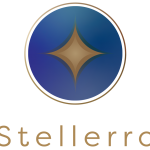
Stellerro alternative investment banking platform that deals in a variety of investments including in real estate, private equity, AI, agro-tech and renewable energy. It ensures their clients meet the right underwriting, compliance & distribution processes of numerous regulated jurisdictions. It allows for tokenization of these assets so investors can then invest in the assets.
Using APIs, STROP will bridge the gap between traditional and digital currencies for anyone willing to invest in these digital assets. On the other hand, any asset owner, fund, entrepreneur and start up can use the platform to raise funds by tokenizing.
Investors who buy these security tokens issued by issuers get economic rights and dividends from the firm in form of quarterly revenues. The company will establish first hub in Switzerland (ZUG) this year, launch the platform in December this year, establish the second hub in USA in March 202 and a third in Asia in June 2020.
Their private sale started on Jun 2nd and will conclude June 16th while the main sale started on June 17th and will take place until Aug 16th.
TokenData 
TokenData is a multi-exchange and business data intelligence platform that will build and execute professional investment decisions.
As a security token, holders can expect quarterly share profits: 30% of all profits will be allocated to token holders depending on the number of tokens each investor is currently holding. The payments will be done in ETH. There also will be a Top Holders Program on which top holders of the TDA token can receive 50% of the license price discount and a Bonus of up to 20% of the number of TDA tokens held by each investor will be paid as bonus in token.
TokenData will also have Data Lake that will serve datasets via API and directly over Pythin, R or Excel. The platform will deliver over 10 million financial and economic datasets from over 500 sources via a single API. The platform will use Big Data and machine learning algorithms to collect data and convert to predictive insights and sentiment analysis. The analyses and insights can then be used as indicators in decision models. An example is a scam index constituted by vectorizing white papers (analyzing company and its fundamentals), and which will evaluate ICOs to determine if they are scam.
TokenData also has a Tradebook, comprising both historical data and on-going ones, which lets users actively manage complex trading strategies in more than 40 global crypto exchanges. Such data is utilized in a range of applications including training and backtesting automated trading systems and strategies.
Their STO will conclude on June 30th.
TradeCloud 
TradeCloud was founded by a leading commodity and IT professionals and is targeted to digitalizing physical commodity markets. The team intends to build a Commodities Web on blockchain technology. The platform works on desktop and mobile applications, and serves as a network-of-networks of services, has been live for one year now and already has customers in over 39 countries and seen over 1 billion USD worth of physical commodity trades initiated on it.
Although the platform is currently serving the metals industry, it will expand to energy and agricultural sectors, with launch of energy products expected this year and agricultural products next year. On it, services such as freight, finance and insurance will drive digital change across commodities industry. Thus it will be a one-stop shop for as many services.
Connecting market participants in the commodity industry will not only improve communication efficiency and price discovery, but also reduce/eliminate poor allocation of services in the industry. For instance, traditional price discovery methods have led to rising costs and shrinking margins. It will also helps deal with fraud which is sometimes fueled by communication interception and changing of those communications.
Besides, it will also help to avail credit insurance and finance channels to more people who need them. On it, people will be able to generate proposals and contracts automatically, monitor replies to bids and offers and tenders, share documents with other users, chat with their teams, search for deals in the market and be invited to participate in those deals. It will also have a peer-to-peer economy. The platform is already hosting templates that customers can utilize to create smart contracts and these contracts will enable parties to also verify the source of the goods.
The token to be traded on the STO will be spent in purchasing services on the platform in future or exchange value for the services. It will also be utilized as loyalty to promote the use of the platform.
For investors who purchase the token, TradeCloud will implement a profit-sharing model where holders will share net profit of the company for a period of 10 years from issuance of the token. They will be paid dividends through distribution of mainstream crypto assets to the investors including BTC and ETH.
Some of the members of the team leading the project include CEO Simon Collins and COO Matthew Botell who have more than 20 years experience in commodities businesses. The two are also former members of management at Trafigura Metals & Minerals Division. CTO Justin Wilson has previously worked at PwC, The European Commission and Goldman Sachs.
The platform is based on Corda blockchain and the blockchain technology will make it fast, efficient, secure and less costly to trade physical commodities and at improved margins.
The STO is in private sale stage currently until the end of this month after which the main sale will start and run until September.


